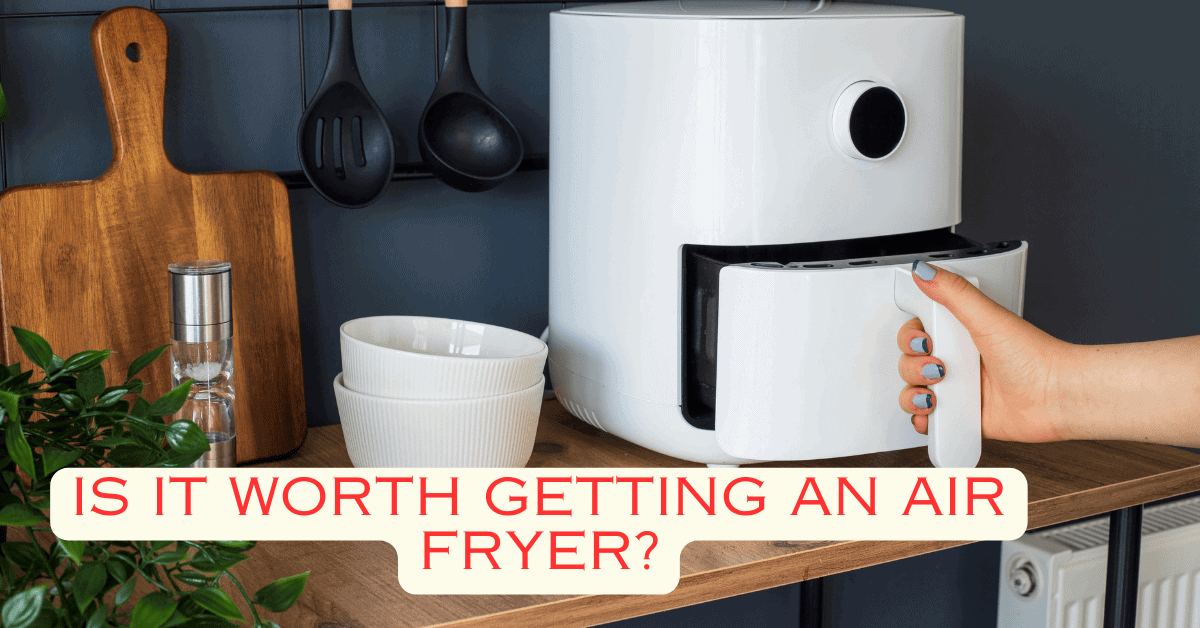Air fryers have taken the kitchen by storm, promising crispy, delicious food with minimal oil. But are they a game-changer, or just another bulky appliance gathering dust on your counter? You can select the best Air Fryers from Wirecutter as per their recommendations.
Air Fryers: Friend or Foe in Your Kitchen?
Let’s delve into the pros and cons to help you decide if an air fryer deserves a spot in your life.
Pros:
- Healthier Cooking: Air fryers use significantly less oil than traditional deep frying, leading to reduced fat and calorie intake. Perfect for guilt-free indulgence!
- Crispy Perfection: The intense hot air circulation creates a crispy golden brown exterior on various foods, from frozen fries to veggies, without the greasiness.
- Versatility Galore: Beyond frying, air fryers can roast, bake, toast, and even dehydrate! Think chicken wings, roasted veggies, pizza rolls, and fruit chips – all in one machine.
- Convenience King: Preheat times are quick, and cooking is often faster than conventional methods. Plus, cleanup is generally easier than dealing with pots and pans full of oil.
- Safety First: Unlike deep fryers with bubbling hot oil, air fryers are enclosed, minimizing the risk of spills and burns.
Cons:
- Limited Capacity: Most air fryers are compact, making them unsuitable for large families or batch cooking.
- Countertop Hog: They can be bulky and take up valuable space on your precious countertop real estate.
- Not-So-Secret Noise: Air fryers can be quite noisy during operation, which might not be ideal for open-concept kitchens or late-night cravings.
- Cleaning Can Be Tricky: While easier than deep fryers, the nooks and crannies of an air fryer can require more effort to clean than a simple pan.
- Not a Magic Wand: While healthier, air-fried food still contains fat and calories. Moderation is key!
The Verdict:
Ultimately, the decision boils down to your individual needs and cooking habits. If you value healthier, convenient, and versatile cooking for smaller portions, an air fryer can be a worthwhile investment. However, if you prioritize large-batch cooking, limited counter space, or noise-free operation, you might be better off sticking to your trusty oven.
What is the downside of an Air fryer?

Air fryers are fantastic for achieving crispy, delicious results, but they’re not perfect. Here are some key downsides to consider:
| Downside | Description |
|---|---|
| Limited Capacity | Small baskets require batch cooking for large portions, potentially increasing the cost for bigger models. |
| Not all foods ideal | Wet batters get messy, delicate items overcook, and liquids like soups/stews are not suitable. |
| Learning curve | Experimentation needed to master cooking times and techniques, adapting recipes for desired results. |
| Countertop hog | Occupies valuable space depending on size, consider footprint before purchasing. |
| Cleaning not effortless | While easier than deep fryers, baskets and components need cleaning after each use, some parts might require manual washing. |
Ultimately, air fryers offer a healthier and more convenient way to enjoy crispy treats, but understanding their limitations can help you decide if it’s the right fit for your cooking habits and kitchen setup.
Bonus Tip: Before buying, consider factors like size, capacity, features, and ease of cleaning. Research various models and read reviews to find the perfect match for your kitchen and cooking style.
So, will an air fryer revolutionize your kitchen? Only you can decide! Weigh the pros and cons, and happy cooking!
FAQ’s
How Air Fryers Work?
How it works:
Heating element: Heats the air inside the appliance.
Fan: Circulates the hot air rapidly around the food.
Perforated basket: Allows the hot air to circulate evenly and excess oil to drip away.
Timer and temperature controls: Let you adjust the cooking time and temperature for different foods.
What is an Air Fryer?
An air fryer is a countertop kitchen appliance that rapidly circulates hot air around your food to create a crispy, fried-like texture using little to no oil.
What is the downside of an Air fryer?
Limited capacity: Cooking large portions might require batching.
Overcooking: Foods can dry out quickly if not monitored closely.
Not ideal for all foods: Soups, stews, and wet batters don’t work well.
Cleaning: While easier than deep fryers, still requires disassembly and washing.
Countertop space: Can be bulky and occupy valuable counter real estate.
What cannot be cooked in an Air Fryer?
While air fryers offer a healthier crispy alternative to frying, they have their limitations. Steer clear of foods with wet batters like tempura or corn dogs, as they’ll drip and make a mess. Dishes brimming with liquids like stews and curries are also a no-go, thanks to potential splattering and uneven cooking.
Delicate foods like soufflés and leafy greens can easily wilt or burn under the air fryer’s intense heat.












+ There are no comments
Add yours